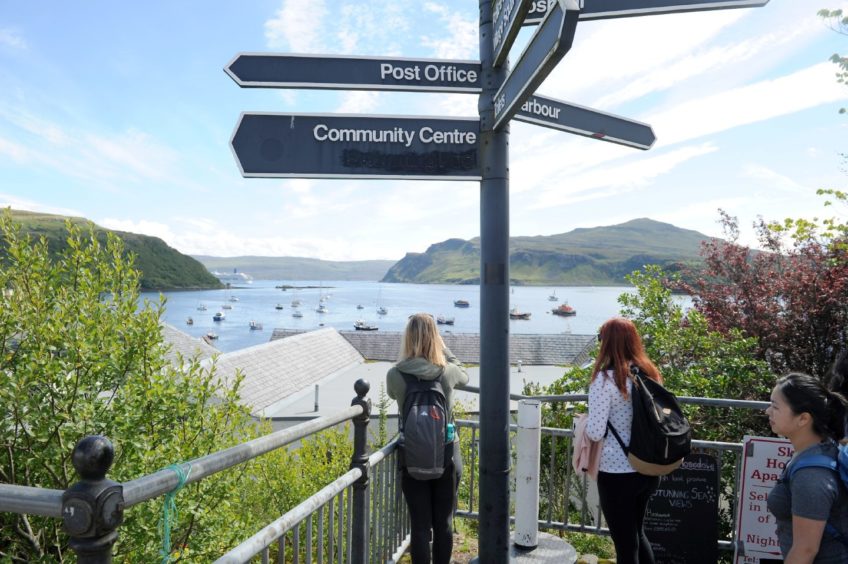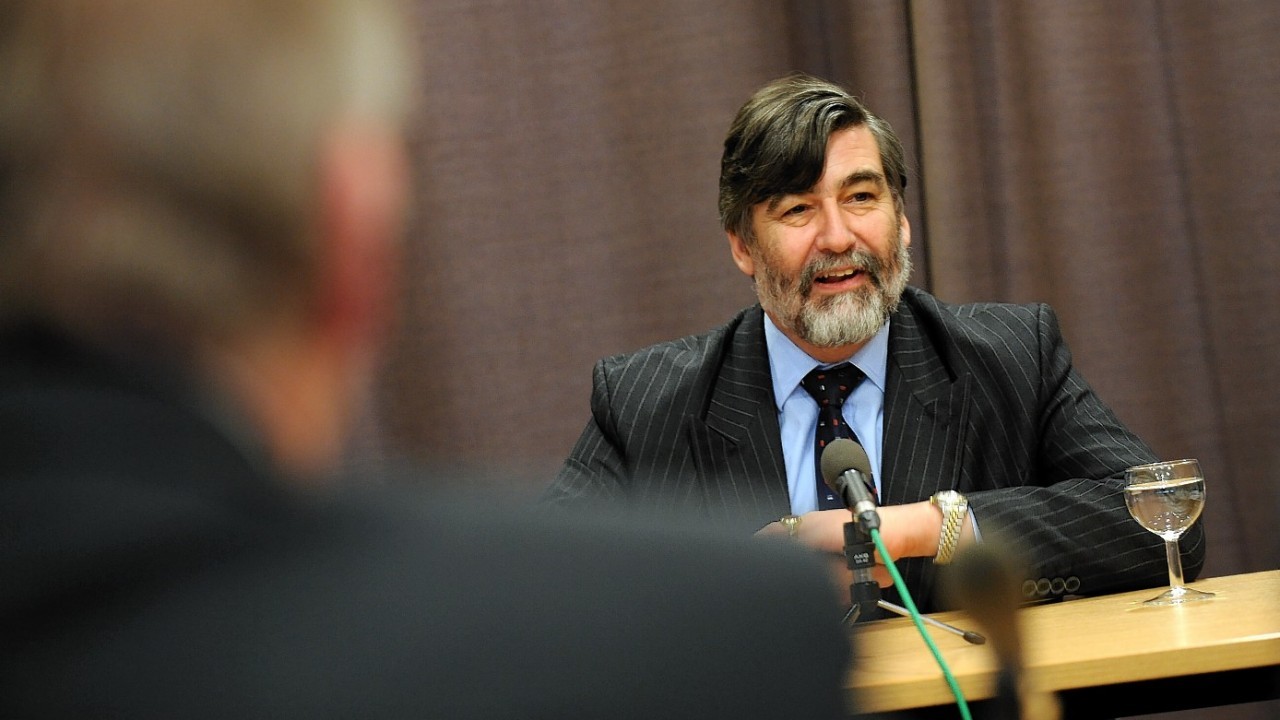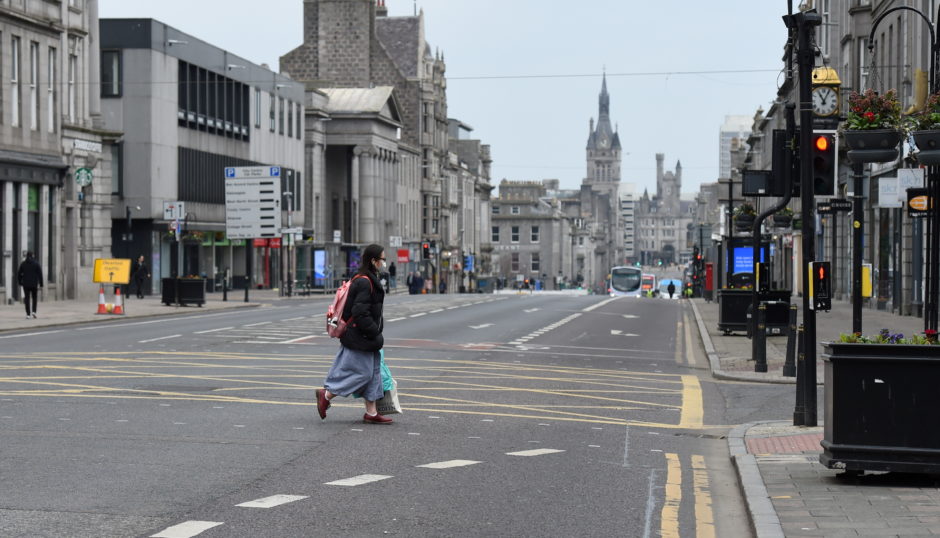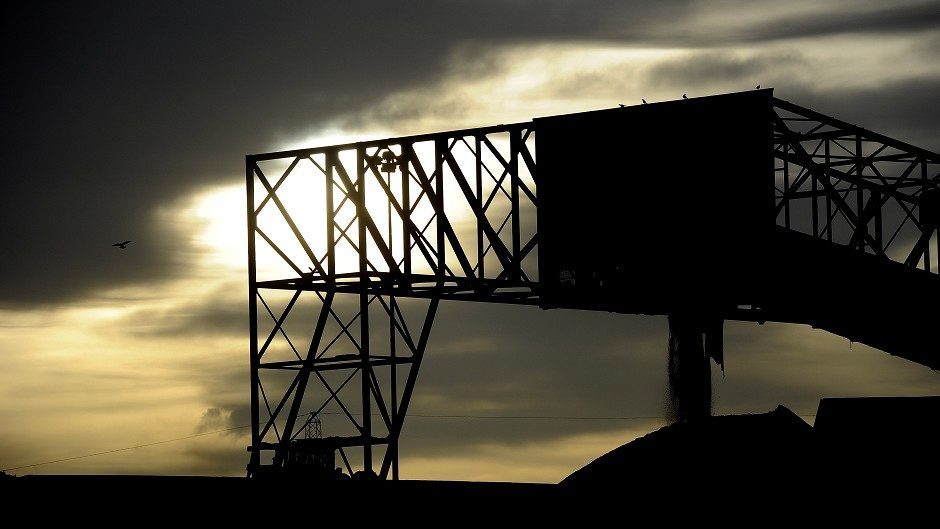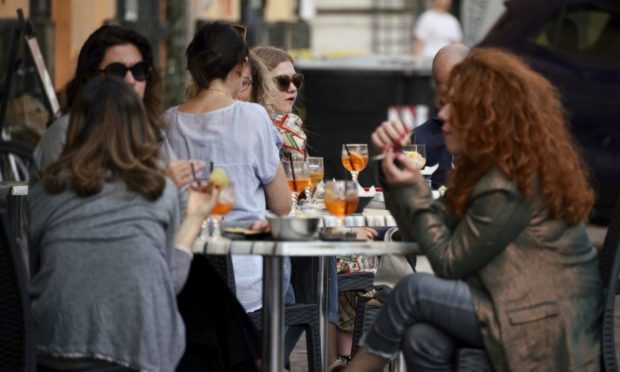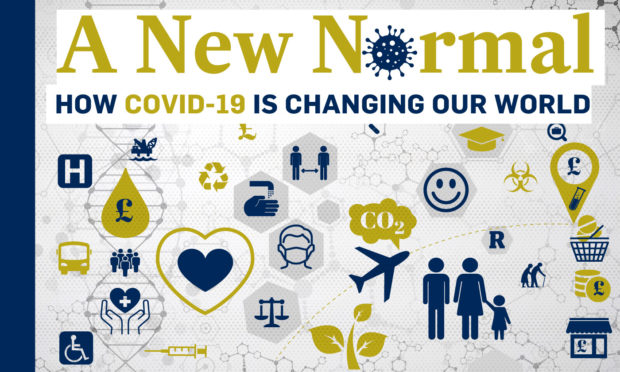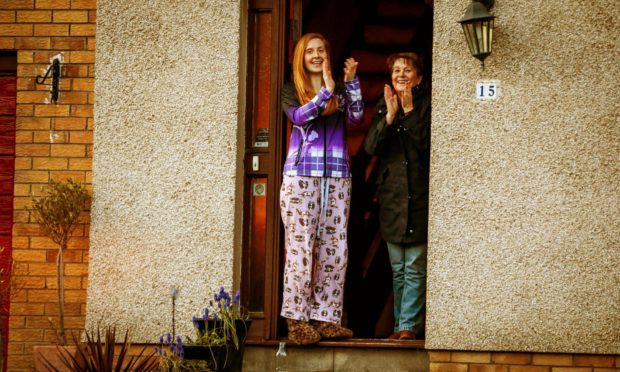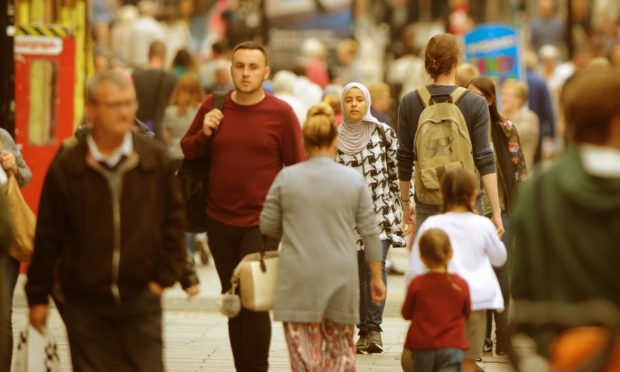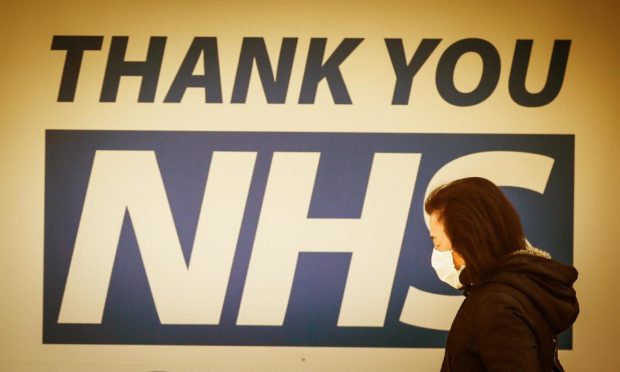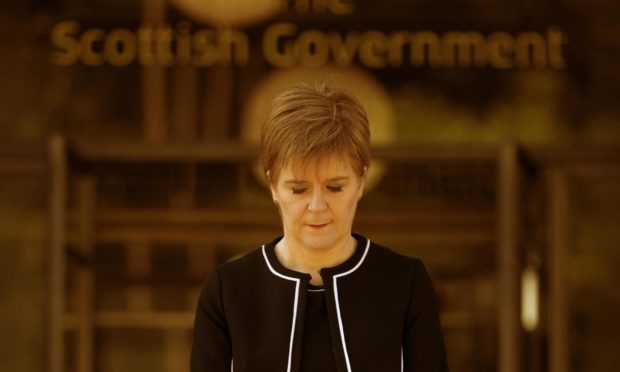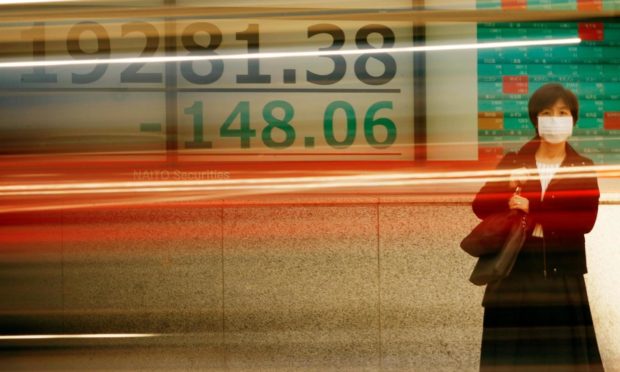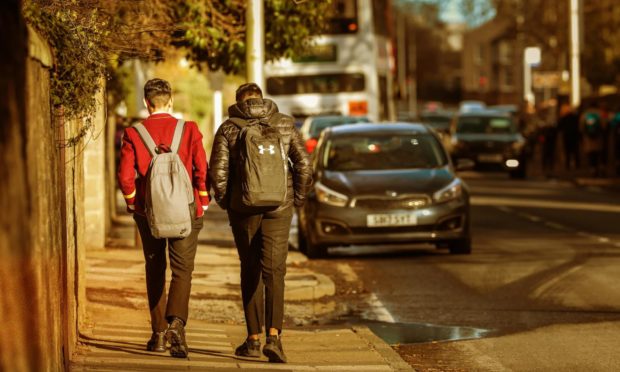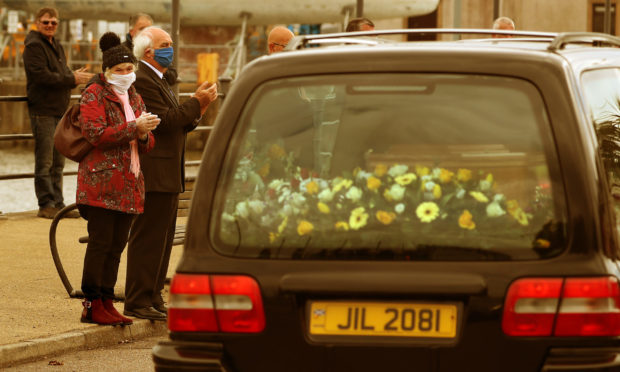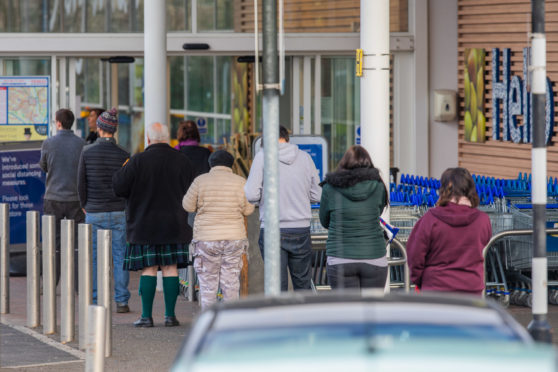The sun may soon be shining but there will be no summer for many of Scotland’s tourism firms in the year of the coronavirus pandemic.
Instead, they have effectively been plunged into the midst of the Narnia-like nightmare scenario of an 18-month winter season, from which some will never recover.
“We stand to lose everything,” said one owner of self-catering cottages, who does not normally break even during the colder months when visitor numbers are lower.
“We find ourselves in some parallel universe. It is Groundhog winter season, with better weather.
“It’s effectively a second winter season, but a bad one with no guests whatsoever, and (we are) staring down the barrel of a third winter season in a row.”
They added: “With no money to pay our way until we can potentially begin to earn again in April 2021, it’s a terrifying situation.”
It found that 69% of those firms were pessimistic about their prospects in the next six to 12 months, with just 14% feeling optimistic.
“The great tragedy is that this year we were set for probably one of the best years on record, and instead it is going to be one of the worst,” said John Thurso, chairman of the national tourism agency, Visit Scotland.
“Where we are at the moment is that tourism and hospitality is basically at zero.
“When you think that we always estimate it is about 10% of Scottish GDP, that is 10% of Scottish GDP that is simply not doing anything.”
The great tragedy is that this year we were set for probably one of the best years on record, and instead it is going to be one of the worst.”
John Thurso, VisitScotland chairman
Lord Thurso, a former Liberal Democrat MP for Caithness, Sutherland and Easter Ross, described the various UK and Scottish government emergency funding initiatives as “an absolute lifeline” during the pandemic.
He added: “Without those schemes you would be looking at as much as half of the industry going broke.
“There are many colleagues I have spoken to who estimate that anything up to a third of the industry will not reopen.
“It is an extraordinarily serious predicament and underlines how important the tourism travel industry has been to the economy.
“If you turn that into jobs, and look at the number of jobs that there are in the industry, we reckon it’s around about 220,000 jobs or thereabouts in Scotland. You are talking about maybe half of those could be unemployed.”
The Scottish Government’s chief economist, Gary Gillespie, has predicted that the nation’s GDP could fall by a third during the pandemic.
The Scottish Fiscal Commission, meanwhile, has warned that the economic impact of the outbreak could be more severe in Scotland than the rest of the UK precisely because of the predominance of the tourism sector, as well as the oil and gas industry.
And while it has been a near total collapse in demand that has been cataclysmic for both the tourism and North Sea sectors, there is the risk of terminal declines if the supply side of the economic equation emerges from the crisis greatly diminished.
“If hotels have ceased to exist, and maybe hotels have been turned into blocks of flats or whatever it might be, if for whatever reason the supply has gone, then you can create the demand again but you can’t fulfil it,” Lord Thurso warned.
James Bream, general manager of Katoni Engineering and a former director of Aberdeen and Grampian Chamber of Commerce, said previous downturns in the North Sea had always been treated as “a kind of temporary thing”, but this might be different.
He said: “We’re all used to the thought that it will bounce back. We are always expecting a bounce back in the north-east.
“There is going to be a point in which there isn’t a bounce back, because there is no real economic rationale for people to undertake capital investment.
“We are now getting to the point where the oil and gas sector in the North Sea where the ball is starting to roll rather than bounce. That’s the way I think of it.”
Mr Bream added: “It does make me think, genuinely I think this time, that there has to be some fundamental change in how we do some things.”
We are looking at fairly sustained impacts on the economy.”
Mairi Spowage
Mairi Spowage, deputy director of Strathclyde University’s Fraser of Allander Institute, said the economic shock in Scotland was “totally unprecedented”.
She added: “Any initial hopes anyone had of it being kind of a case of ‘we’ll mothball the economy, we’ll get through this and then we’ll open everything back up again’… Those hopes are kind of gone.
“What is clear is that restrictions of some sort will be in place for the foreseeable future, and some businesses won’t be able to operate in the same way, probably for a year if not longer, depending on what happens with a vaccine and testing and things like that.
“So we are looking at fairly sustained impacts on the economy.”
‘There are definitely going to be opportunities’
Ms Spowage believed that some businesses and markets would be altered “fairly fundamentally” by the crisis, but that opportunities would also present themselves.
She said: “Sectors that are not doing very well before we went into the crisis, such as traditional retail – there are a number of these businesses that are in trouble now and who knows how they will emerge from this.
“One of the biggest impacts, even once all the direct measures are removed and the government doesn’t restrict any businesses from opening, is the public attitude to going out and spending, and to travel.
“But there are also other businesses who, if they weather the storm well and are able to get through this, might benefit from having fewer competitors in the sector in the future.
Perhaps there will be a renewed focus on whether we need to have more of a focus on local suppliers as we come out of this.”
Mairi Spowage
“There are definitely going to be opportunities. Those businesses who, for example, have a strong online presence and have been able to benefit from the circumstances they find themselves in, and the sort of spending we’re interested in doing right now, will likely come out of this stronger, and have fewer competitors as a result.
“And perhaps there will be a renewed focus on whether we need to have more of a focus on local suppliers as we come out of this.
“So it is no longer just about what is the cheapest thing we can get, but maybe it’s the least risky thing.”
The shape of things to come
A move to more reliance on local shops and suppliers would be one way in which the economy might move “back to the future” in the wake of the pandemic.
Another could be a shift away from the focus on urban areas as economic hubs, a change driven by the transition to home working made during the lockdown.
Mr Bream believed it could have major implications for the future of our office spaces, and our cities.
“Over the past 10 years, probably, there has been a big increase in things like the Centre for Cities policy group, there’s the Scottish Cities Alliance, and all of these groups have been promoting cities as important as hubs of employment, and there has been a real urbanisation for a long time now,” he said.
“But actually if you think about what this (pandemic) has driven, for the way we work, actually it is a move towards more local, home-orientated stuff, which kind of makes me question whether the role of cities will be the same as we’ve pushed it over the last 20 years.
“And that raises pretty fundamental questions about things like taxation, use of buildings, all of the stuff that has been too difficult or worrisome.
“The parking tax, workplace parking levy, for example. I wouldn’t be surprised if that was something fairly easy to deliver now. The pedestrianisation of Union Street (in Aberdeen) – what better time to do it?
“There’s a whole lot of stuff around that area that is right for some quite radical thinking, and it is going to be much easier to deliver things over the next year than it otherwise would be.”
It’s doomed if we think of ourselves in a historic way of working.”
James Bream
While Mr Bream could only believe that the shockwaves reverberating through the economy as a result of the pandemic would “accelerate the general closure of the North Sea”, he did not see any reason why the industry could not “sustain the future of a number of platforms for many years yet”.
He added: “It’s doomed if we think of ourselves in a historic way of working. But if we react in the right way, I don’t see that we need to accelerate it to the point where we are closing the North Sea in the next five years.”
Whatever its fate, Mr Bream believed the north-east of Scotland was fortunate to have had advance notice that the industry was winding down.
“Most places around the UK just don’t have that benefit when the local mine closes, or the local chicken factory, or the tyre factory – they close overnight,” he said.
“People won’t feel it but I think in that context we’re lucky to be able to plan somewhat, albeit that, yeah, we have to react to economic conditions just like every other region around the UK does, but our position is, I genuinely think, more privileged than some others.”
There is no doubt in my mind that the strength of the Scottish product will come through, and it will again be a major and serious contributor to the economic wellbeing of the country.”
Lord Thurso
Lord Thurso was also optimistic that the tourism industry in Scotland would once again bask in the summer sun, although he admitted there would be work to do to reassure some rural communities where there had been local controversies during the lockdown relating to visitors flouting the rules by travelling from coronavirus hotspots.
“We’re now looking at resetting and restarting, and getting ready for that,” he said.
“The big travel companies are working on the basis that something might start up in September or October, and some of the self-catering are looking at a gradual start around August or September, trying to catch the end of the season.
AUDIO: Listen to the ‘New Normal’ series writers discuss their findings in this special Stooshie podcast
“It’s all intensely conditional. The one thing I would say with total confidence is that when we come through this – which may well be, fully, two years away – there is no doubt in my mind that the strength of the Scottish product will come through, and it will again be a major and serious contributor to the economic wellbeing of the country.
“I have no doubt about that. I have absolutely no doubt that the quality of the Scottish product, the quality of our environment, the quality of our people, means that at some point in the future we will be absolutely back on top of the world.”

